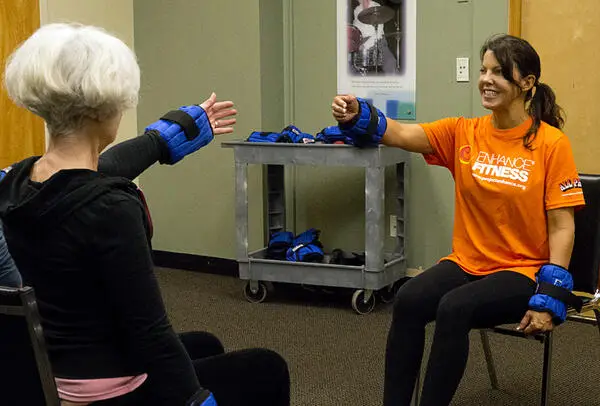
Why Evidence-Based Programs are Important
When it comes to choices for senior care, it can feel like you have too many options. Making the right choice is always a challenge, as there are so many factors to consider, from cost and the level of care provided to the accessibility of the location. Even seniors still living independently at home need to think about how to maintain their quality of life as their needs change.
One factor that’s important to consider is whether or not a senior care or healthcare facility is using evidence-based programs in the care of its residents. Evidence-based programs are important in elder care and wellness to help ensure that seniors are able to live their lives to the fullest.
What Are Evidence-Based Programs?
Evidence-based programs (EBPs) are simply social and health programs that have gone through thorough testing in controlled environments to ensure that they are effective. Instead of maintaining the status quo and simply doing things the way they’ve always been done, evidence-based programs are not based on long-standing assumptions — they’re based on evidence.
Before they are made into practical models and made available to organizations, EBPs must be evaluated by experts to ensure that the methods used in creating and testing the programs are sound. This helps to provide accountability and ensures that the programs are beneficial for the groups using them.
Where Are Evidence-Based Programs Used?
Evidence-based programs can be found in a variety of settings. They can be used to help make communities stronger and improve the overall wellness of different segments of the population (such as seniors or youth).
EBPs are frequently used in fields like senior care, education, medicine, youth services, social work, public health, and crime prevention. Any sector that is tasked with serving members of the community should be using EBPs to promote the best possible outcomes.
Why Are Evidence-Based Programs Important for Seniors?
Many senior citizens need help from social programs, especially if they are still living independently but don’t have family assistance for tasks like grocery shopping and meal prep, picking up prescriptions, and transportation to appointments. They also typically need far more medical care than the population as a whole.
In order to help seniors stay as healthy as possible and maintain or improve their quality of life, medical and social services need to be sure that the plans they implement are actually working. The only way to do this is to use EBPs in as many settings as possible. EBPs can help seniors stay safe and healthy in many ways, including reducing fall risks and helping patients manage chronic conditions.
Evidence-Based Practice in Medicine
Patient care has gone through some enormous changes in the last few decades. Today, more healthcare organizations are choosing evidence-based practice in medicine to improve outcomes and enhance the patient experience.
Evidence-based practices have a long history in medicine. Without them, for instance, we wouldn’t even know that sanitation is critical in the hospital environment. However, it’s important to understand that evidence-based practices aren’t always used, even when they are available. In some facilities, doctors and nurses continue to use the same protocols they’ve always used — even if there are new EBPs that suggest a different course of action.
Finding medical providers who use evidence-based practices is important for seniors. Most older people need frequent health assessments and many have chronic conditions as well. Medical providers who value EBPs can help older patients achieve better health outcomes overall.
EBPs Help Communities
Social and health services are expensive — especially when the programs and protocols being used do not show much evidence of being effective for the people they are trying to help. EBPs, on the other hand, can help build stronger communities in several ways.
EBPs can help people in the community live better lives, while often cutting down on overall costs. Care providers also benefit, as they are able to see the positive outcomes EBPs provide, which can reduce frustration and burnout.
Data-Driven Programs Help Seniors Live Well
EBPs are backed by both research and testing. Our world continues to become increasingly data-driven, which makes it easier to implement programs that actually produce the outcomes they promise. Evidence-based programs are also the most efficient way to provide care plans that help seniors live well, as they allow social and health service providers to abandon practices that are ineffective.
EBPs Help Ensure Quality Continuing Care
People who need continuing care don’t always have a lot of say in how they are cared for. For residents and family members alike, it can be a little scary to trust a care facility to provide the best possible care. However, knowing that a facility uses evidence-based practices can help everyone involved feel a little bit better.
A lot of effort goes into creating EBPs. Using them to help seniors stay in good health and enjoy better overall wellness only makes sense, whether in a hospital, long-term care facility, or at home. Regardless of the setting, EBPs set the standard for quality care.